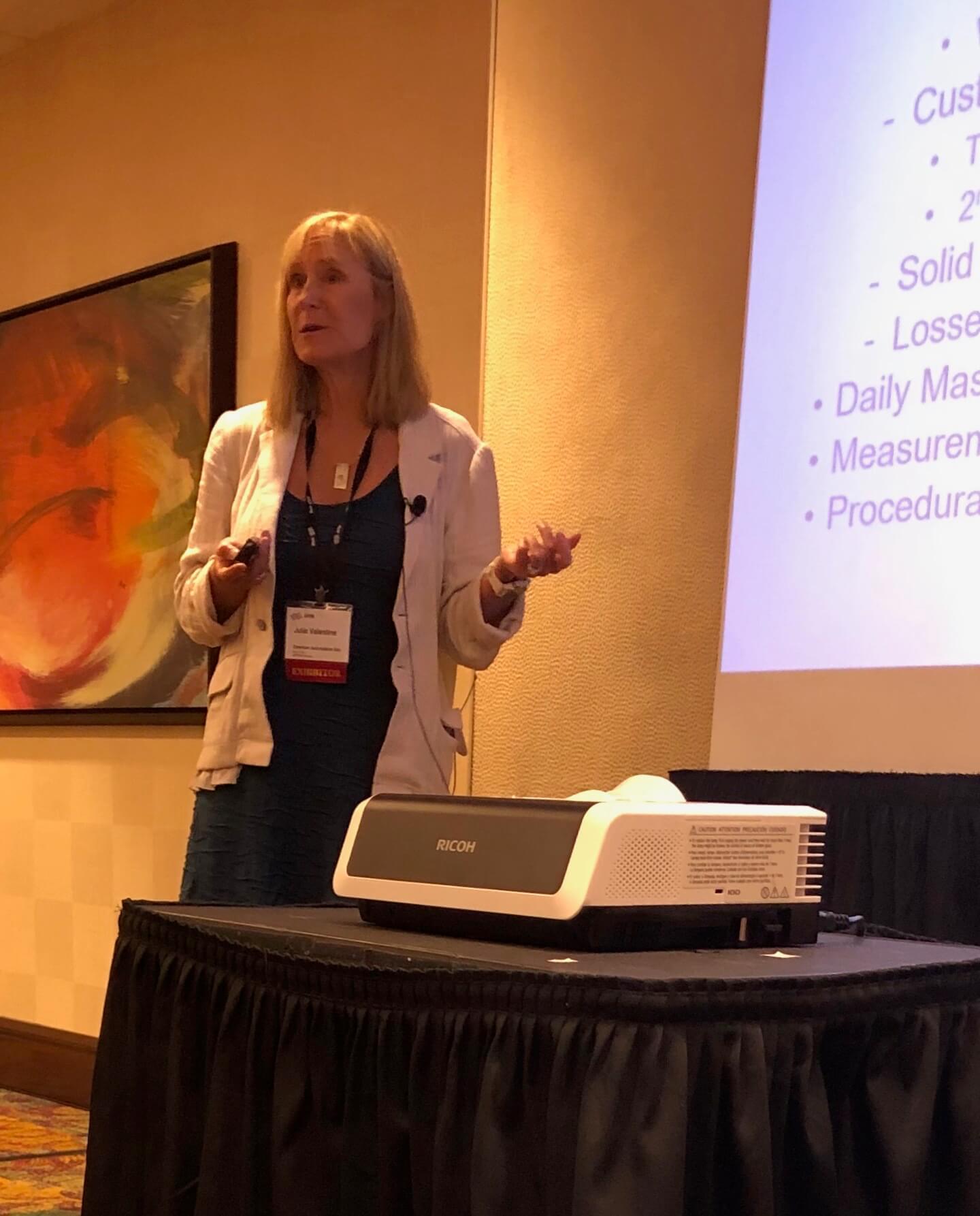 On behalf of a South American refining professional, Emerson’s Julie Valentine presented a case study, Impact of Refinery Mass Balance and Loss Control on Operational Excellence, at the 2019 AFPM Operations & Process Technology Summit. Here’s the abstract from this presentation:
On behalf of a South American refining professional, Emerson’s Julie Valentine presented a case study, Impact of Refinery Mass Balance and Loss Control on Operational Excellence, at the 2019 AFPM Operations & Process Technology Summit. Here’s the abstract from this presentation:
Improving a refinery’s mass balance and loss control program for accounting, planning and scheduling, financial, and operational evaluation purposes, and having a clear understanding of the losses and where they occur is critical for performance… [they] reduced unaccounted losses from an initial 5-7% 20 years ago, to an average of 0.11% this past year—with an estimated annual savings of $25 million.
Julie opened describing the refinery and their journey with a mass balance program that began 20 years ago. Losses in the refinery come through flaring, evaporation and fuel consumed. Unaccountable losses are things you can’t measure and that was a focus area for reduction.
Mass balance matters for profitability, HSE [health, safety & environment] and process optimization. Profitability is affected by the accuracy of custody transfer, and accurate payments for what is bought and sold.
20 years ago, this refinery had high levels of losses, on the order of 5% of raw material. Problems were identified in the criteria for mass balance, monthly mass balances performed, volumetric flow measurement, and more.
The solution was to invest in better measurements, improve key performance indicators (KPIs) used, implement data reconciliation and foster continuous improvements. Mass balance criteria were reengineered, primarily in the storage tank instrumentation, but also in natural gas inflows, and mass flow measurements for custody transfer.
Next step was to take a deeper dive in analysis detailed by product and by energy. Reconciliation software help identify bad actors, the need for additional flow meters, and the necessity to apply mass measurement technology. It also helped to identify uncertainties and tolerances where measurement needed to be improved.
Continuous improvement came from a closed-loop process for changes & work planning. Actions were categorized into short-term, medium-term and long-term priorities where results were determined, and evaluation performed to feed into the next round of changes & work planning.
Larges sources of loss were from flares, custody transfer, solid coke measurement inaccuracies, and consumed fuels. A daily mass balance was added to assess progress. Flares are typically the largest source of identifiable loss. Ultrasonic flow meters paired with gas chromatograph (GC) to identify composition changes and loss amounts through the flare.
For the storage tanks, they used dynamic metering system measurements for the tank inlets and outlets with Coriolis mass flow meters. For the coke measurements, they segregated coke piles, weighed and measured the moisture content. Fuel consumption accuracy is affected by the changes in the fuel BTU and specific gravity changes. Moving from volumetric flow measurement to mass flow measurement help improve fuel consumption measurement accuracy.
Through these improvements, average monthly unaccounted losses dropped to the 0-0.05% range from the original 5% losses. They also have a much better understanding of their energy consumption profile to identify opportunities for improvement.
Visit the Flow Measurement and AFPM Operations & Process Technology Summit sections on Emerson.com for more solutions and technologies to improve operational performance for refineries and petrochemical plants.

